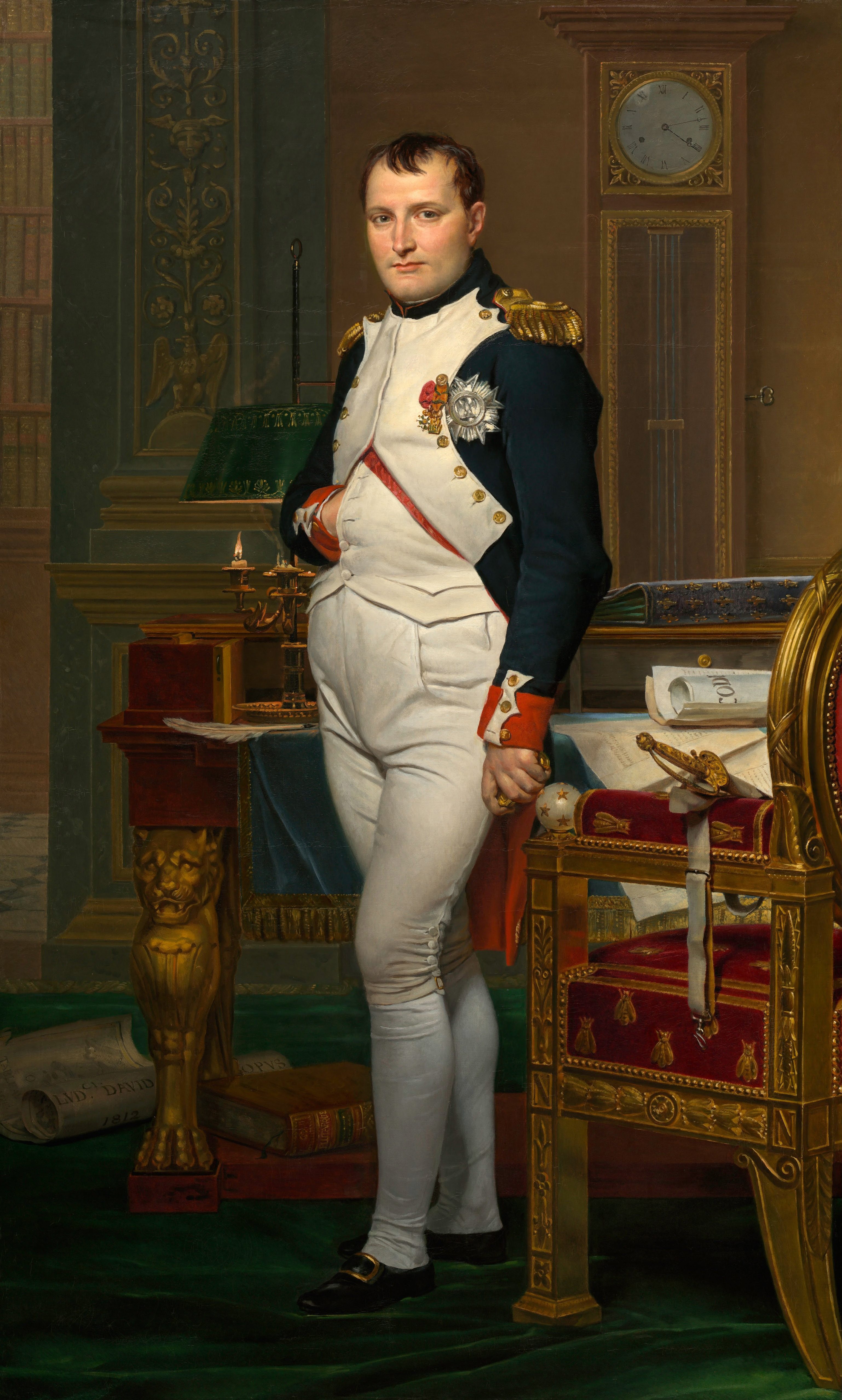Napoleon I of France Quotes
Source: Political Aphorisms, Moral and Philosophical Thoughts (1848), p. 246
“Ability is nothing without opportunity.”
As quoted in Have You Ever Noticed? : The Wit and Irony of Every Day Life (1985) by Joe Moore
Attributed
“The moment of greatest peril is the moment of victory.”
Napoleon : In His Own Words (1916)
“The secret of great battles consists in knowing how to deploy and concentrate at the right time.”
Napoleon : In His Own Words (1916)
Napoleon : In His Own Words (1916)
Letter to Sheikh El-Messiri, (28 August 1798); published in Correspondance Napoleon edited by Henri Plon (1861), Vol.4, No. 3148, p. 420
“Never ascribe to malice that which is adequately explained by stupidity.”
Often known as Hanlon's razor, this was attributed to Napoleon without source in Message Passing Server Internals (2003) by Bill Blunden, p. 15, ISBN 0071416382
Misattributed
From an alleged Letter of to his Minister of the Interior on the Poor Laws. Pub. in The Press, Feb. 1, 1868.
Attributed
As quoted in Mama Was My Teacher: Growing Up In A Small Southern Town (2004) by Dozier Cade, p. 77
Attributed
“From the heights of these pyramids, forty centuries look down on us.”
Speech to his troops in Egypt (21 July 1798) Variant translation: "Soldiers, from the summit of yonder pyramids forty centuries look down upon you...". Published in the autobiography of French general Eugène de Beauharnais.
Napoleon : In His Own Words (1916)
“One can lead a nation only by helping it see a bright outlook. A leader is a dealer in hope.”
Napoleon : In His Own Words (1916)
“Fanaticism must be put to sleep before it can be eradicated.”
Napoleon : In His Own Words (1916)
On the subject of torture, in a letter to Louis Alexandre Berthier (11 November 1798), published in Correspendance Napoleon edited by Henri Plon (1861), Vol. V, No. 3605, p. 128
Napoleon : In His Own Words (1916)
“Give them a whiff of grapeshot.”
This is often quoted as a command Napoleon issued when dispersing mobs marching on the National Assembly in Paris (5 October 1795), or it is occasionally stated that he boasted "I gave them a whiff of grapeshot" sometime afterwards, but the first known use of the term "whiff of grapeshot" is actually by Thomas Carlyle in his work The French Revolution (1837), describing the use of cannon salvo [salve de canons] against crowds, and not even the use of them by Napoleon.
Misattributed
“Whatever misanthropists may say, ingrates and the perverse are exceptions in the human species.”
Napoleon : In His Own Words (1916)
Robert G. Ingersoll, The Liberty of Man, Woman and Child
About
The earliest publication yet located of this famous palindrome is in the "Witty and Whimsical" section of The Saturday Reader, Vol. II, No. 30 (31 March 1866), p. 64:
It is said that Napoleon, when asked by Dr. O'Meara if he really thought he could have invaded England at the time he threatened to do so, replied in the following ingenious anagram [sic]: — "Able was I ere I saw Elba." The reader will Observe that it reads the same backward or forward.
Of such attributions to Napoleon, there is little credence, as stated by William Irvine in Madam I'm Adam and Other Palindromes (1987): "The well-known ABLE WAS I, ERE I SAW ELBA, for example, is conveniently attributed to Napoleon, whose knowledge of English wordplay was certainly questionable, at best." There is no mention of such a palindrome in O'Meara's own work, Napoleon in Exile : or, A Voice from St. Helena (1822).
Misattributed
“The great difficulty with politics is, that there are no established principles.”
Napoleon : In His Own Words (1916)
Napoleon : In His Own Words (1916)
Napoleon : In His Own Words (1916)
Napoleon : In His Own Words (1916)
Variant: It is only by prudence, wisdom, and dexterity, that great ends are attained and obstacles overcome. Without these qualities nothing succeeds.
“A great people may be killed, but they cannot be intimidated.”
Political Aphorisms, Moral and Philosophical Thoughts (1848)
“A good sketch is better than a long speech.”
Un bon croquis vaut mieux qu'un long discours.
Quoted in L'Arche de Noé (1968) by Marie-Madeleine Fourcade, p. 48; this has sometimes also been translated as "A picture is worth a thousand words", though it is not known to be the origin of that English expression.
Attributed
“Posterity alone rightly judges kings. Posterity alone has the right to accord or withhold honors.”
Napoleon : In His Own Words (1916)
“Power is founded upon opinion.”
Source: Political Aphorisms, Moral and Philosophical Thoughts (1848), p. 248
Political Aphorisms, Moral and Philosophical Thoughts (1848)
“War is a lottery in which nations ought to risk nothing but small amounts.”
Napoleon : In His Own Words (1916)
“An army of sheep, led by a lion, is better than an army of lions, led by a sheep.”
Attributed to Napoleon in Napoleon (1941) by Yevgeny Tarle, this is a variant of an ancient proverb often attributed to many military and political figures, including Alexander the Great, and the even earlier figure Chabrias (Χαβρίας).
Misattributed
“What is the government? nothing, unless supported by opinion.”
Source: Political Aphorisms, Moral and Philosophical Thoughts (1848), p. 242
“As a rule it is circumstances that make men.”
Napoleon : In His Own Words (1916)
“Never depend on the multitude, full of instability and whims; always take precautions against it.”
Napoleon : In His Own Words (1916)
“An army ought to be ready every moment to offer all the resistance of which it is capable.”
Napoleon : In His Own Words (1916)
“The superior man is never in anyone's way.”
Napoleon : In His Own Words (1916)
